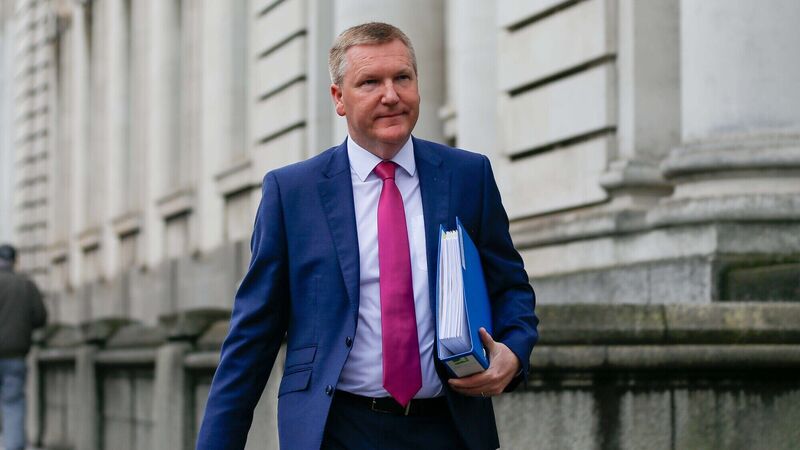Minister for Finance to create new rainy day fund to absorb future shocks to the economy

Minister for Finance Michael McGrath arriving at government buildings. Photo: Damien Storan.
Minister for Finance Michael McGrath has announced it will set up a sovereign wealth fund to house longer-term savings in an effort to shield the economy from “serious fiscal challenges on the horizon”.
Mr McGrath said the wealth fund will be capitalised by windfall taxes and some fraction of any future budgetary surplus.











